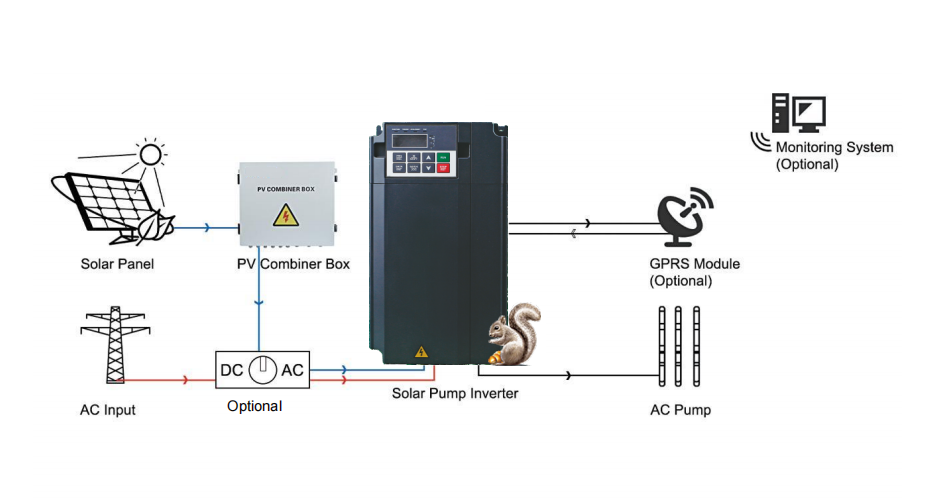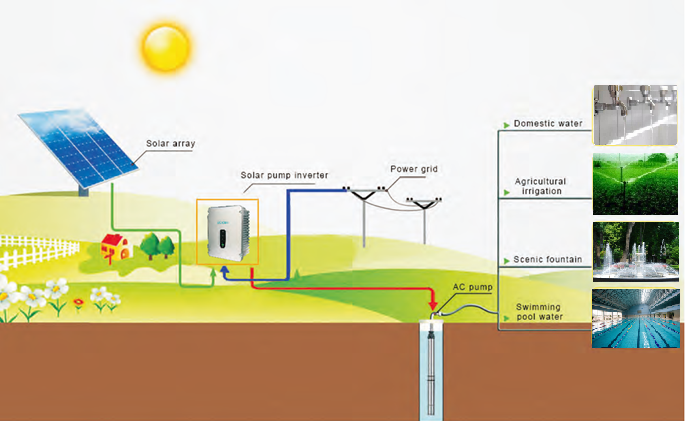In the context of the continuous development of agricultural technology, the integration of solar panels and solar water pumping systems has become a transformative technology for farmers, especially those in remote areas. Many farms, especially those far from urban centers, often lack a reliable power grid, and irrigation faces huge challenges. However, with the advancement of solar technology, these challenges can now be effectively addressed. Solar water pumping systems not only provide a sustainable solution for irrigation, but also provide a cost-effective alternative to traditional irrigation methods.

Solar water pumping systems operate by harnessing the power of the sun through solar panels. These panels convert sunlight into electricity, which is then used to drive the water pumps. This innovative approach eliminates the need for diesel generators or power lines, which are both expensive and impractical in remote areas. By simply connecting the solar panels to a converter, farmers can efficiently drive the pumps, ensuring that their crops receive the necessary irrigation without incurring high energy costs. The system is particularly beneficial for farms that rely on a steady supply of water to ensure optimal crop growth.
One of the most significant advantages of solar water pumping systems is their affordability. Traditional irrigation methods often involve significant operating costs, including generator fuel and electrical system maintenance. In contrast, solar panels require little maintenance and have no ongoing fuel costs, making them an economically viable option for farmers. By reducing irrigation costs, farmers can allocate resources more efficiently, ultimately increasing productivity and profitability. This economic benefit is critical for smallholder farmers who struggle to maintain sustainable operations.

Furthermore, the environmental impact of solar water pumping systems cannot be ignored. As the world strives to combat climate change and pursue sustainable production, solar energy is a clean, renewable alternative to fossil fuels. By utilizing solar panels for irrigation, farmers can significantly reduce their carbon footprint and contribute to a more sustainable agricultural sector. This is in line with global efforts to promote environmentally friendly agricultural practices and can improve the market competitiveness of their agricultural products as consumers increasingly favor sustainably sourced products.
In summary, the combination of solar panels and solar pumping systems offers a revolutionary solution to irrigation challenges faced by farms, especially in remote areas. By providing a reliable, cost-effective and environmentally friendly method of irrigation, these systems enable farmers to overcome traditional barriers that have hindered agricultural success. As solar technology continues to advance, solar pumping systems have great potential to transform agricultural practices and enhance food security. Investing in this technology not only benefits individual farmers, but also contributes to the broader goals of sustainable agriculture and environmental management. Harnessing solar energy for irrigation is more than just a trend, it is a necessary step towards a more resilient and sustainable agricultural future.
Post time: May-16-2025

